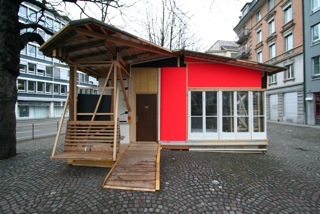Katharina Schlieben & Sønke Gau
The Mental Comma Instead of the Full-stop. Questioning Production Conditions
How to negotiate and to bring into the arena of curating the invisible, the marginalised, the immaterial, or the ephemeral? This question is connected to the political issue of representation: who and what is represented and how does it come to the fore? How to define means of representation, how to create and form methodologies of visual translations for ephemeral practices and long-term processes? A reflection on institutional framework conditions, namely on conditions under which research-based, participatory, socially-engaged and context-related art production takes place today in connection to funding criteria is of importance in relation to the question of representation. The funding situation and production conditions of the project series Work to do! Self-Organisation in Precarious Working Conditions could be described as “caught between two stools” and demands for “more work to do!”.
Saturday, 28. 01. 2012 at 19.00
@Greta, Ilica 92
Sønke Gau – worked at the Institute for Contemporary Art at the Academy of Fine Arts Vienna, as exhibition co-ordinator, and curator at Künstlerhaus Wien 2000-2004, and as project manager of the 3rd berlin biennial for contemporary art. He has been researcher and project manager of Institutions of Critique at the Institute for Critical Theory (ith) since 2010 and Scientist in Residence at the MA in Transdisziplinarität, 2011-2012, both at Zürich University of the Arts (ZHdK).
Together they formed the curatorial directing team of the Shedhalle in Zürich 2004-2009, and have edited following publications: Spectacle, Pleasure Principle or the Carnivalesque – A Reader on Possibilities, Experiences in Difference and Strategies of the Carnivalesque in Cultural-Political Practice and Work to do! Self-Organisation in Precarious Working Conditions (2008 and 2009).
with the support of: Ministry of Culture of the Republic of Croatia, Goethe-Institut Kroatien, National Foundation for the Development of Civil Society
